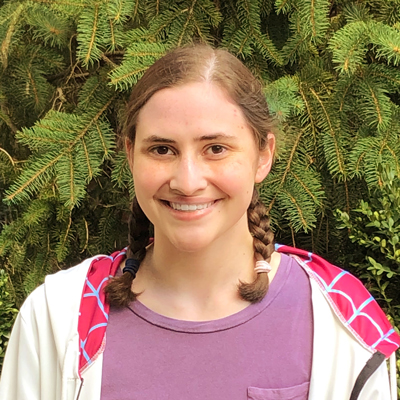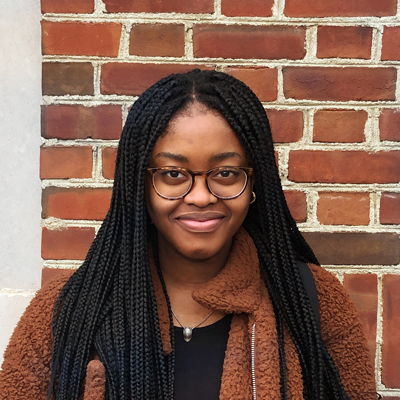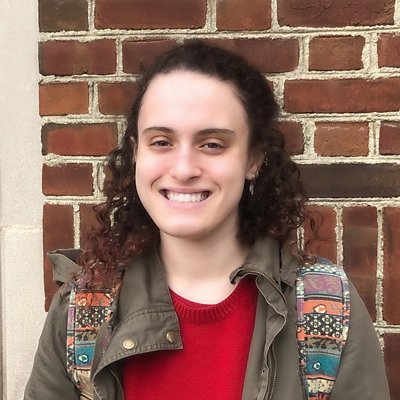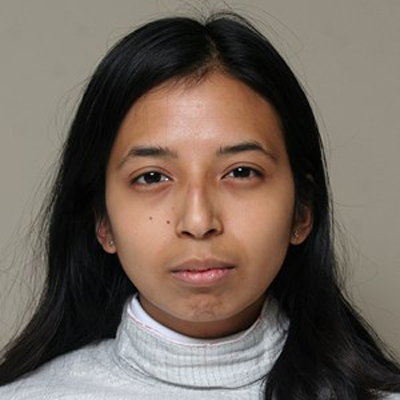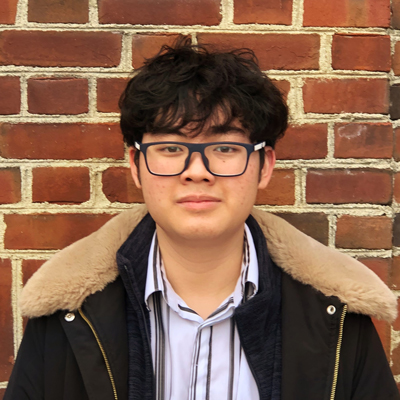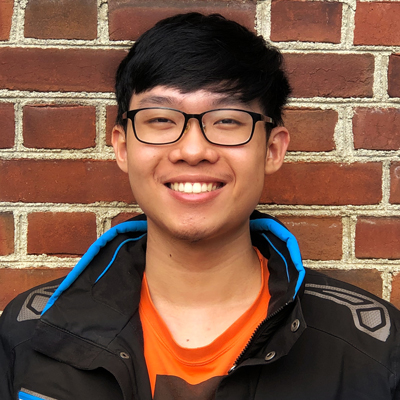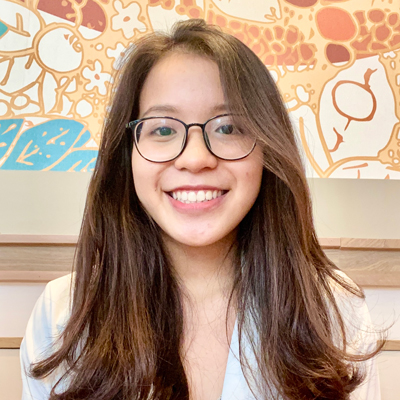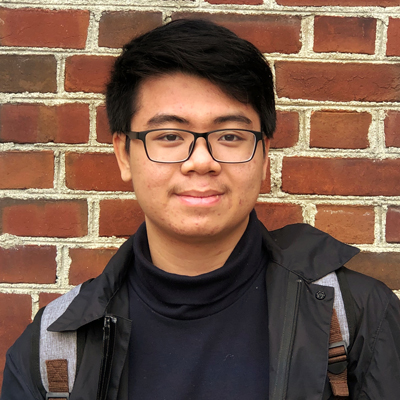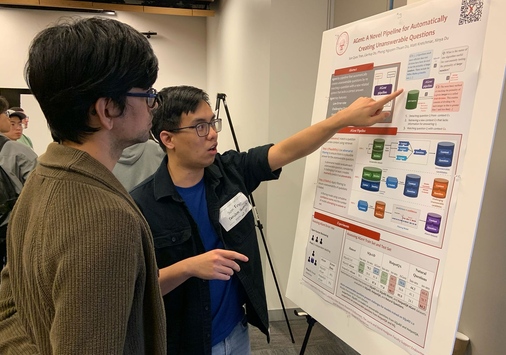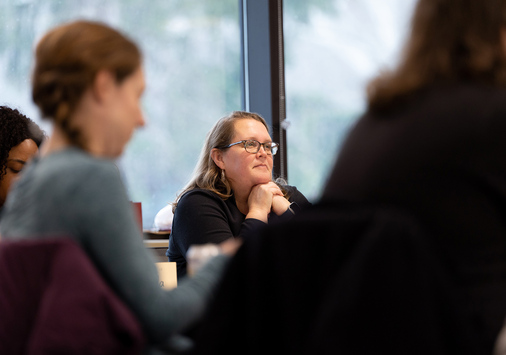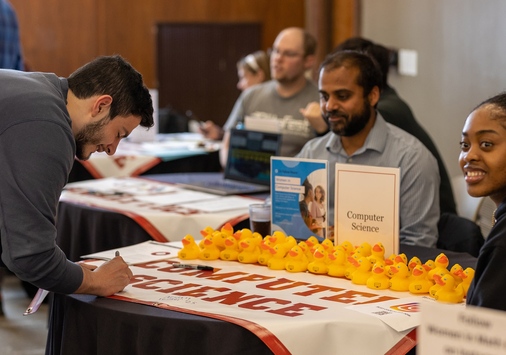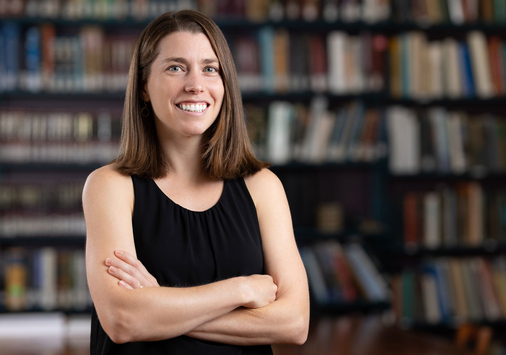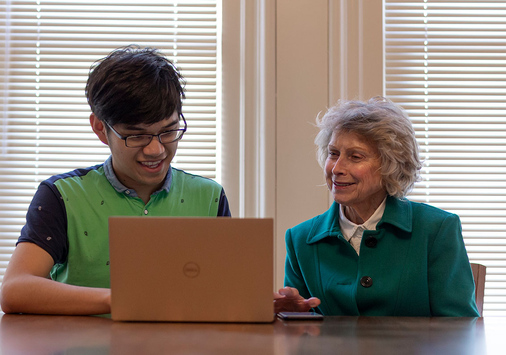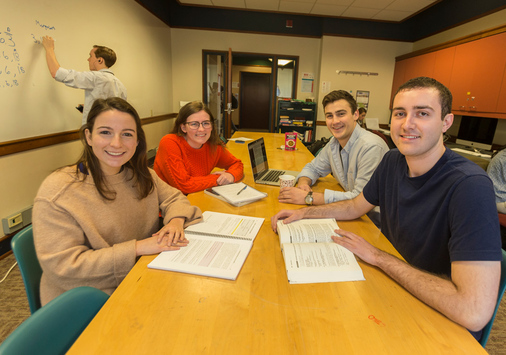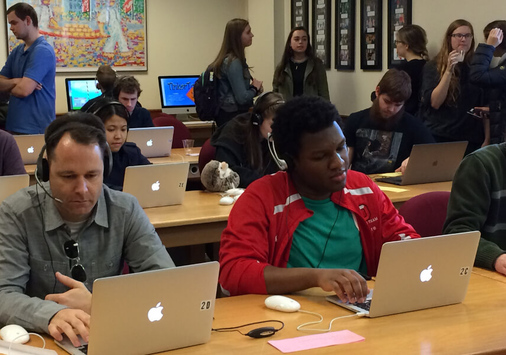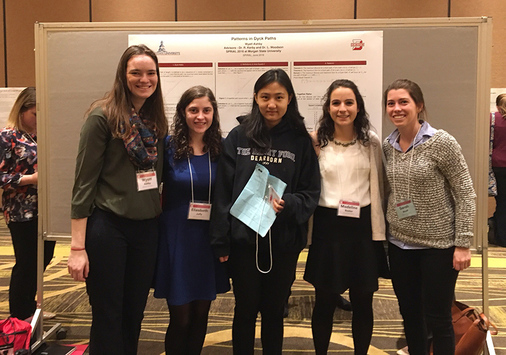Have you ever had that nightmare where you are taking the final exam in a class, come to the last big problem and realize you only have 10 minutes left to finish it? For a group of standout Denison students, that scenario became a reality on a cold Saturday afternoon in February during the 31st Annual Denison Spring Programming Contest. Not only did Denison students volunteer for this experience, but they also found it deeply rewarding. The contest followed a remote format this year with 14 teams competing from four different Ohio liberal arts schools. The Denison students stormed the competition, taking the top four places (the first place team was a mixed school team with a Denison student member) and five out of the top seven.
The programming contest challenges students to solve as many of the six programming problems as possible within the alloted four-hour time frame. Teams of up to four students collaborate, scramble, think, invent and hack their way through the problems at a torrid pace, pausing only briefly to slam some caffeine or seek sustenance in a bag of Fritos. Team scores are determined by how many problems each team can solve as well as how quickly they can find solutions. “There are definitely strategies to performing well in these contests” remarks Dr. Ashwin Lall who has been running the school’s programming contest for the last seven years. “It is not just about talent. The most successful teams work together, collaborate, and share.”
This year’s contest featured such diverse tasks as making anagrams of numbers, computing changes to coastlines due to climate change, and creating a map of someone’s geo-track wanderings. These contests typically offer a couple of easy problems, a couple of medium problems, and a few hard ones. The key to emerging near the top is to identify the easy problems first and solve them quickly to earn a low time-score. Denison sophomore Tessy Udoh echoed the teamwork aspect “It is interesting to work with CS majors in different class levels and see their different coding styles.” Her teammate, sophomore Olivia Strasburg, agreed “It was nice to work with friends who you might not normally be in a class with” noting the advantages of forming a team that crosses graduation year boundaries. The third place finishing team featured a quartet of Denison women, anchored by standouts, senior Meg Jaffy and junior Anusha Shukla, along with the super sophomore duo of Udoh and Strasburg.
“Solving problems in a pressured environment is a different, complementary experience to what most students encounter in the more deliberative classroom. This really teaches students to think quickly and efficiently” reflects Dr. Lall. Finishing on the 4th place team, sophomore Khoi Le shares “the contest brings problem solving skills to the next level.” Second place finisher Phineas Pham explains “After the contest I learned that there are problems that at first may seem unsolvable but with teamwork, patience, and breaking the problem down little by little, we may find the answer. The contest is a great way to use the knowledge we have learned in class and contribute to the teamwork with what we know.” Strasburg shares Dr. Lall’s sentiments “The contest helps me think outside the box.”
This year, most of Denison’s teams featured predominantly sophomores and first years. Denison’s first year students overcame their fear, jumped right into the contest and found immediate success. First year student Grace Le shares an additional challenge of working remotely, “My team has three remote students out of four, so the three of us had to stay awake from 1am to 5am in the morning. Hilariously, one of my teammate had decided to sleep earlier at 7pm so that he could devote all of his mind and energy to the competition. It was a terrifying experience for us, but spending four hours in the early morning together was also kind of fun. We would never stay awake that late if it hadn’t be for this contest. We were all really excited.” With so much young talent gaining valuable early experience, the future for Denison programming competition teams looks very bright. Denison runs a 1-credit problem solving seminar in the fall semester where Dr. Lall helps students develop the complementary skills of solving problems and working well in a team environment. We are expecting to see good enrollment in that course next year.
Denison competitors were:
- 1st place - Amswer - Phong Hoang (along with a Michigan student and Dartmouth student)
- 2nd place - Koding Koala - Minh Phuc Pham, Anh Minh (Wilson) Le, Minh Nguyen
- 3rd place - D Flat - Tessy Udoh, Olivia Strasburg, Anusha Shukla, Meg Jaffy
- 4th place - ForFunCS - Uyen Le, Tung Khanh Luu, Son Quoc Tran, Khoi Le
- 7th place - Remote Gang Programming - Minh Nguyen, Khoa Trinh
